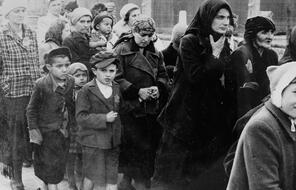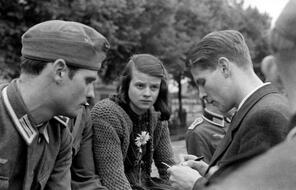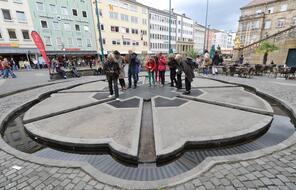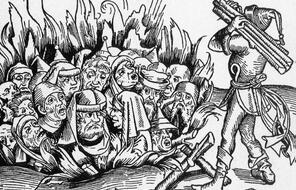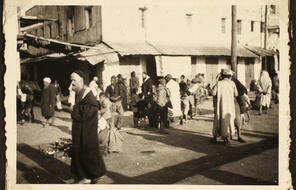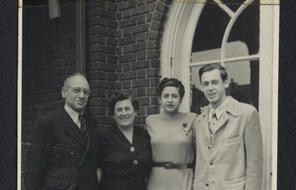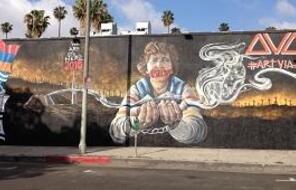“A 'Total Violation of Human Dignity’ Girlhood Interrupted in Auschwitz (1944)”
At a Glance
Language
English — USSubject
- History
- Social Studies
- The Holocaust
- Human & Civil Rights
Before going on to read the text below, share the fact that it takes place in Europe and focuses on experiences at Auschwitz. It is important to recognize that there were North African Jews in the camps in Europe. Some of them were sent to camps from North Africa, and some were living in Europe during the Holocaust and were sent to camps when they were caught by the Nazis. The latter is the case in this reading. Instruct students to listen while you read the text aloud, and write down ideas or phrases that stand out to them.
Simone Lagrange was called Simy Kadosche as a child, and she was born in Saint-Fons, France. She was one of five children of Jewish parents who immigrated to France from Morocco. When the Nazis occupied France in June 1940, Lagrange’s father, Simon, joined the resistance. As her father worked to gather weapons and help refugees, 13-year-old Simy also helped the resistance by distributing leaflets. On June 6, 1944, Simy, her parents, and one of her sisters were arrested by the Gestapo after someone with whom they were living informed the Nazis of their activities. Simy was interrogated and tortured as the Nazis sought information on the whereabouts of her other siblings. Eventually, the SS sent Simy and her mother, Rachel, to the Drancy internment camp outside Paris and then to Auschwitz.
This document is an excerpt from Simy’s testimony at a war crimes trial in 1987. She shares about the horror of her arrival at Auschwitz, and after describing having her head shaved, she continues with the following:
Timidly, I slowly look up and—what a surprise! I no longer recognize anyone! We are no longer the same. I don’t see my mom and I start to cry. I’m embarrassed by my tears, but I can’t help myself. I feel the great sorrow of a child, but am I even still a child?
Suddenly, my mom comes over to me, her hands tensely covering her lower belly. She is obviously uneasy, however she smiles at me, softly caressing my shaved head: “You know,” she tells me, “hair grows back even more beautiful, you’ll see. And it’s cleaner this way because in prison, we might have gotten lice.”
Two by two, we enter a small room lit by a single lightbulb hanging from the ceiling. Three women are waiting for us, seated on a bench. They are going to tattoo a number on our arms, something that I just can’t bring myself to believe, because for all that has happened, we are not animals being led to the slaughter! Alas, soon we will no longer be anything but an ID number, forever etched onto our forearms; in very little time, we will no longer be anyone at all.
Getting a tattoo hurts, but what hurts me the most is that I feel dirtied by it. From that moment on, it is part of me, and will always be part of me. . . . Whereas for the previous several days I had believed myself to be weak like a child, suddenly this mark that I am going to have to keep forever relights my combative spark. I bear my claws, I do not accept the loss of my identity, that I will be nothing more than an ID number that I’ll have to memorize. And in German! That, I utterly refuse! And with a sudden rage, I start to press down on the digits written on my arm, pushing the ink out. Too bad if it hurts, I am proud to stand up to those who want to turn me into someone who doesn’t exist anymore. I want to get out this ink that contaminates me. My number is A8624, but soon the four is no longer recognizable. I succeeded in fighting this digit and I am proud, so proud of this. All of a sudden, I again find my lost spirit. They won’t get me, that’s for sure! I smile at my mom, who looks at me and smiles back, but that attracts the attention of a guard who comes over to me. Upon noticing the blurriness of the last digit of my number, she quickly understands and pulls me towards her, making me bend over on a stool close by. She yells, but what do I care, I don’t understand.
Then, with a whip, she starts to lash my back. Oh, how it burns! And I start to scream in pain, but also out of anger because I simply cannot stand lashings. A deathly silence settles over the rows [of women], no one could have imagined that they would whip a child to such an extent.
One lash, two lashes. Painfully, I count them. Eight lashes, nine lashes, I don’t even feel the pain anymore. After ten lashes, it’s finally over!
With a brusque movement, my torturer lifts me back onto my feet and then it hurts, I hurt so terribly, to the point that I cannot even stand up straight. All the other women look at me, astonished because they don’t understand why I was beaten. I go over to my mom, but slowly, discreetly, because I have just realized that if they notice I’m with her, I risk being separated from her. How quickly one learns! 1
- 1Stein, Sarah Abrevaya, and Aomar Boum. “Lagrange, Simone. Coupable d’être née: Adolescente à Auschwitz (Paris: Harmattan, 1997). Translated from French by Rebecca Glasberg.” Essay in Wartime North Africa: A Documentary History, 1934–1950 (Stanford, CA: Stanford University Press, 2022), 52–57.
How to Cite This Reading
Facing History & Ourselves, “A 'Total Violation of Human Dignity’ Girlhood Interrupted in Auschwitz (1944),” last updated June 30, 2023.
This reading contains text not authored by Facing History & Ourselves. See footnotes for source information.

